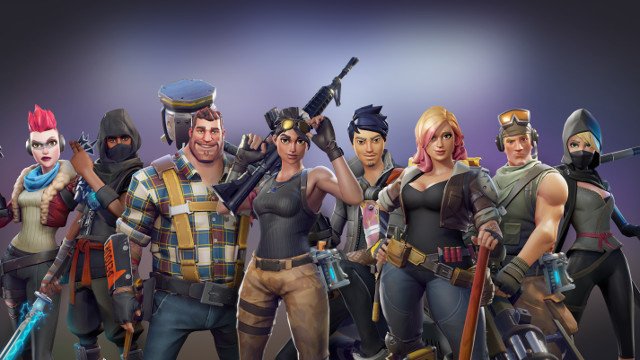When Fortnite Battle Royale was first announced, the general consensus was that it was too derivative of PUBG to carve out a dedicated following of its own. A lot of people dismissed it as a clone of Bluehole’s battle royale game, predicting that it would soon fade into obscurity as PUBG continued to increase its player base at an alarming rate. But it didn’t.
Right now, Fortnite is arguably the biggest game in the world. At the least, it is unquestionably the hottest game in the west, with it becoming a pop culture phenomenon over the past few months and its popularity growing by the week. It’s certainly one of the biggest success stories this industry has ever, and its meteoric rise has defied all expectations.
So how did it get here? How did Fortnite go from a middling fort-building game to one of the most talked-about video games ever? Let’s take a look at the story so far.
Controversial Beginnings
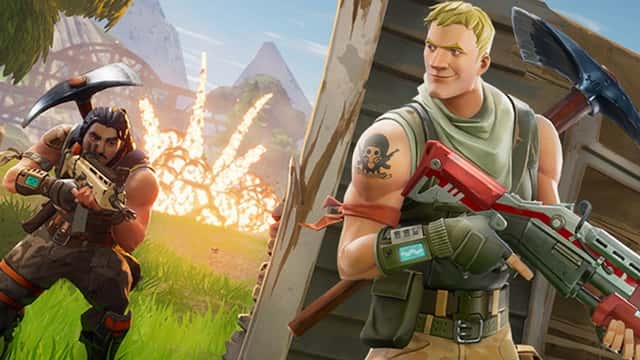
Epic Games was initially involved in a brouhaha with Bluehole, after the PUBG developer’s Vice President Chang Han Kim stated that it had “growing concerns” over how derivative Fortnite Battle Royale appeared to be.
“We’ve had an ongoing relationship with Epic Games throughout PUBG’s development as they are the creators of [Unreal Engine 4], the engine we licensed for the game,” Chang Han Kim said. “After listening to the growing feedback from our community and reviewing the gameplay for ourselves, we are concerned that Fortnite may be replicating the experience for which PUBG is known.”
With PUBG being the uncontested best battle royale game at that point, when Fortnite Battle Royale was released on September 26, 2017, many assumed it would eventually disappear into the void. Clearly, Bluehole saw promise in its competitor and wanted to extinguish those flames early.
Hitting Milestones
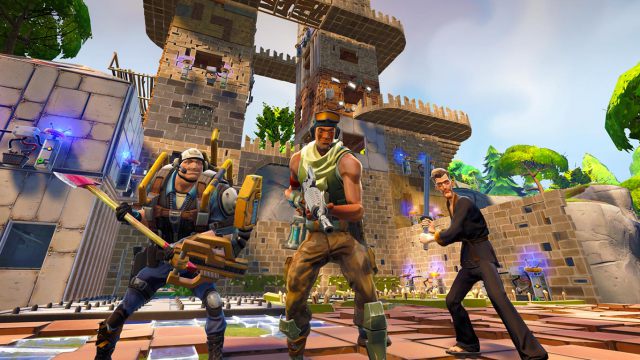
It wasn’t long before the conversation around Fortnite Battle Royale began to shift. What was initially perceived as a Hail Mary attached to a struggling shooter, swiftly started to become the only reason why people played Fortnite at all.
It became one of the most-streamed games on Twitch, started to pull in giant numbers on consoles and PC, and in November Epic announced that the game had passed an incredible milestone after pulling 20 million players:
We just passed 20 million players across all of Fortnite since launch! Thanks from the bottom of our pic.twitter.com/LuVV5vb7wj
— Fortnite (@FortniteGame) November 6, 2017
PUBG was still the most successful battle royale game, though, with it achieving 17 million sales around this point despite lacking the built-in player base that Fortnite Battle Royale enjoyed as a result of those who purchased the base game. It remained more profitable, too, with its $30 price tag ensuring that some money went into Bluehole’s back pocket for every sale, unlike the free-to-play Fortnite Battle Royale. However, Fortnite showed no signs of slowing down, while PUBG appeared to be reaching its peak. It wouldn’t be long before it would be the game on everyone’s lips.
Twitch Success
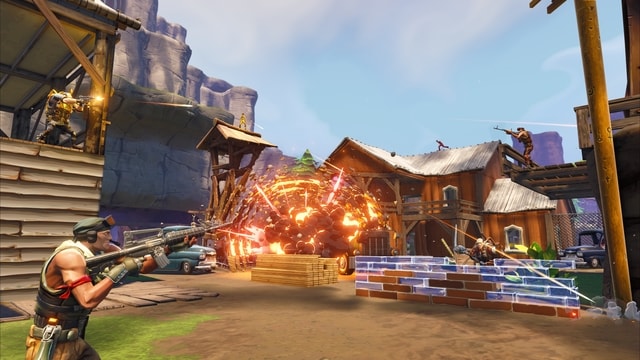
Twitch has contributed to Fortnite‘s success as much as Fortnite has helped Twitch rake in viewers. One pro streamer, 26-year-old Tyler “Ninja” Blevins, was a popular online personality before Fortnite, though the game’s extraordinary rise to prominence has seen his audience blow up alongside it. After previously bursting onto the scene as a pro Halo player and then a PUBG streamer, Ninja has seen his career benefit greatly from his Fortnite videos.
Discussing why Fortnite is overtaking PUBG, Ninja pointed out a number of factors that have seen Epic’s battle royale game skyrocket over the past six months. “The game runs 10x smoother than PUBG, [Epic] quickly handled the connection issues when facing an overloading number of 3.4 million active users,” he told Forbes in an interview. “The game is free, multi-platform (and growing), and it is just fun. Also being completely free-to-play helps.”
This week, Ninja contributed to yet another landmark moment for Fortnite when he appeared on stream with bonafide A-lister Drake, breaking Twitch’s non-tournament concurrent viewer record in the process, pulling in an audience of over 600,000 simultaneous viewers during its peak. This stream, which was also shared on Twitter by the rapper to his 36.8 million followers, introduced Fortnite to a whole heap of new players.
“Ninja and Drake’s Fortnite livestream on Twitch attracted 628K concurrent viewers, setting a new milestone in terms of peak concurrent viewers on an individual’s channel,” Twitch’s senior vice president of marketing Kate Jhaveri said in a statement. “Seeing a top gamer and musician come together on Twitch and unite their large and passionate communities is a cultural moment in terms of building awareness around the appeal of social video and it’s only going to grow from here.”
Best for Business
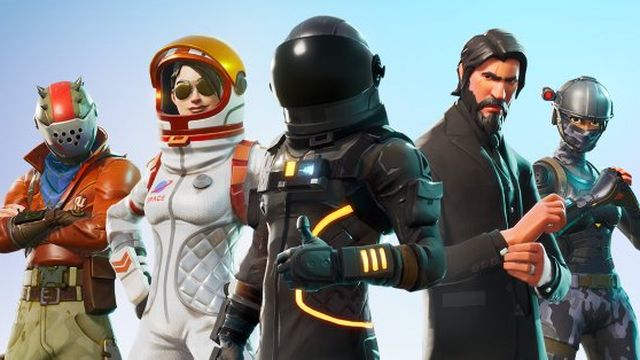
Prior to Fortnite Battle Royale launching, no one could have guessed that it would reach the heights that it has. However, the foundations were always there for it to be a massive success. Fortnite was an underwhelming release that sold well but didn’t exactly hit it out of the park. Its fast-paced fort-building mechanics were widely praised, as was its frenetic action, though its dull progression system hamstrung the enjoyable parts of the game.
Fortnite Battle Royale did away with that progression system and missions in their entirety, leaving players with the basics of its gameplay and a sprawling map that, unlike PUBG, was mostly free of bugs and technical issues. This alone was enough for it to grab some attention, with PUBG‘s poor optimization proving to be an unassailable barrier to entry for some players. Unlike PUBG, a ramshackle game that became a smash hit and then had to accommodate this huge new audience, Epic Games had already built a fully functional game before Fortnite Battle Royale‘s launch. The game worked as it should and it played well, which immediately set it apart from its rival for many.
However, the key determining factors in Fortnite‘s success were its availability on consoles and the fact that it was free-to-play. It took ages for PUBG to receive a console version, and even then, it was limited to the Xbox One. This was a great coup for Microsoft, though not exactly ideal for the future of the game itself. On the other hand, Fortnite Battle Royale was readily available to PS4, Xbox One, and PC players, so anyone who couldn’t play PUBG but wanted to do so inevitably found themselves being drawn in by Epic’s free-to-play game.
The end result of this was players trying out Fortnite, discovering that it was enjoyable in its own right, and then opting to not move on to PUBG at all. Accessibility drastically increased Fortnite‘s fortunes, and its upcoming release on mobile will only extend its reach. The Fortnite train doesn’t show signs of slowing down anytime soon, and not only is it the hottest game in the world right now, but it threatens to stay that way for a longer time than anyone could have imagined.
